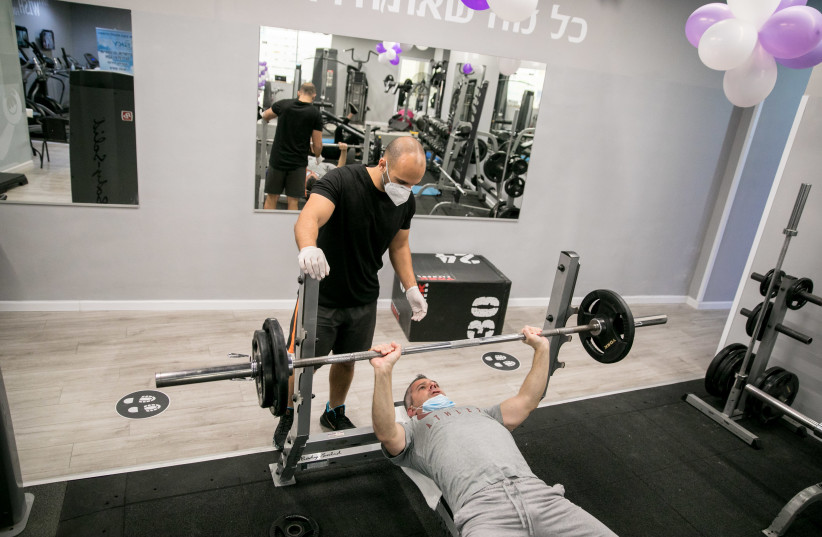For some of us, exercise feels unbearable, but many people actually like to exercise, and even say that they’re addicted to it and can’t forgo it.
New research, published in Medicine & Science in Sports & Exercise examined in depth the activity in the minds of people who exercise, to try and understand this complex mechanism.
The study revealed a particularly optimistic finding, suggesting that any person, even one who really dislikes exercise can change thinking patterns and start thinking and feeling just like these annoying people who love sports.
<br>Love/hate relationship?
For the study, scientists from the University of Turku in Finland recruited 64 volunteers who performed a long series of physical exercises. Participants also completed questionnaires that reviewed their feelings and attitudes about training and also had scans to test changes in their brain activity throughout the trial period.
Specifically, researchers sought to examine the function of opioid receptors in the brain. These receptors respond to the presence of natural painkillers (endogenous opioids) that the body produces which play an important role in responding to pain, maintaining motivation and regulating emotions such as stress and anxiety.
"I think we need to recognize that there’s a big difference between different people's reactions to physical activity and not all of us find it fun or rewarding."
Dr. Tina Snyuki

<br>Programming our brains
Even if you aren’t "programmed" to love exercise, this isn’t a fait accompli.
Dr. Tina Snyuki, a neuroscience expert who led the study, explained that “some people are born with a better system of MOR receptors which helps them cope better with pain and enjoy exercising more. Maybe this makes it easier for those people to keep going."
Yet she emphasizes that this is only a hypothesis and the explanation can also be reversed. "It could be that a better system of MOR receptors is evolving because they persist in habits like exercise over time."
To test this hypothesis, she and her team allowed volunteers to undergo intensive high-intensity spinning training, until they reached a state of exhaustion, to assess their initial fitness level. Next, the exhausted participants performed more types of high-intensity interval training to assess how the activity itself and the increase in fitness level affected their brains during the trial period.
The main conclusion of the study is that the more people persist in physical activity, the better the activity of MORs receptors in their brains, or in simple words the more they exercise the less painful, less difficult, and more rewarding the training.
Snyuki summed it up like this: "The findings highlight two points that are important to dwell on. The first is that if you don’t enjoy exercise, it doesn’t mean that you’re doing something wrong. It could be that your brain is just built that way.
"I think we need to recognize that there’s a big difference between different people's reactions to physical activity and not all of us find it fun or rewarding," said Snyuki.
However, the second important conclusion that emerged from the study is that the way we respond to exercise isn’t a fait accompli and it can change, if only we persevere and don’t give up on ourselves. That is, just as the body gets used to the activity, so the brain gradually begins to get used to it and even enjoy it over time.
Even if at the moment the thought of exercising seems painful, stressful and difficult to you, when you keep doing it eventually it will feel a little less demanding and complex. Also, it may cause the brain to respond better to exercise and to other events that are difficult, painful or stressful for you.
